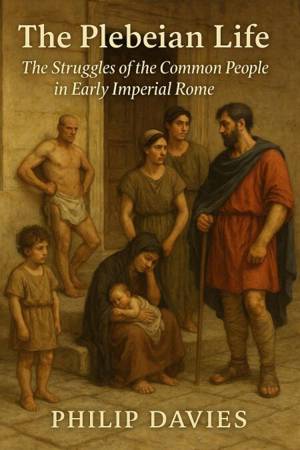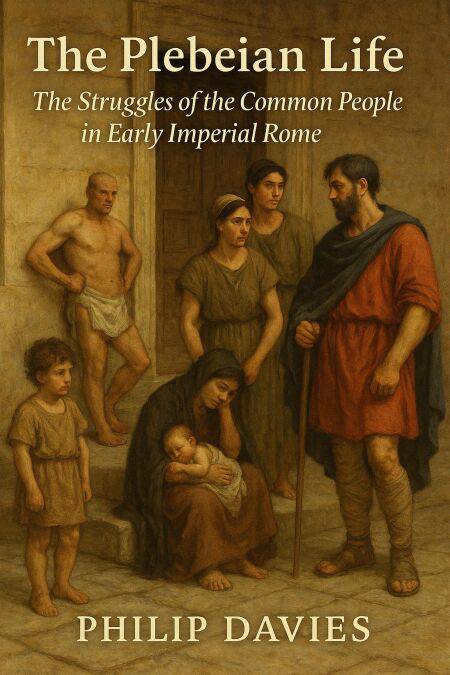
- Afhalen na 1 uur in een winkel met voorraad
- In januari gratis thuislevering in België
- Ruim aanbod met 7 miljoen producten
- Afhalen na 1 uur in een winkel met voorraad
- In januari gratis thuislevering in België
- Ruim aanbod met 7 miljoen producten
The Plebeian Life: The Struggles of the Common People in Early Imperial Rome E-BOOK
Philip DaviesOmschrijving
"The Plebeian Life: The Struggles of the Common People in Early Imperial Rome" delves into the lived experiences of the plebeians—the common folk who formed the backbone of Roman society but often found themselves at the margins of political and social power. Through the lens of Roman history, the book explores the daily challenges and battles faced by the plebeians as they navigated a world of vast inequality, from the Conflict of the Orders to their evolving roles in the Roman military, economy, and culture.
The narrative paints a vivid picture of the plebeians' lives, focusing on their efforts for political representation, their engagement in religious rituals, and their participation in public festivals. The book examines how the plebeians, despite their struggles, influenced the social and cultural life of Rome, contributing to the formation of Rome's identity and the development of its empire. From their participation in political movements, such as the rise of populist leaders like the Gracchi, to their crucial involvement in Roman religion and entertainment, the plebeians were not passive participants but active contributors to the empire's fabric.
In addition to political and religious struggles, the book reveals the economic hardships of the plebeians, who endured poverty and the risks of exploitation by the wealthy elite. Yet, through systems like patronage, military service, and trade, they found ways to survive and, in some cases, rise above their circumstances.
By examining primary sources, such as the works of Livy, Tacitus, Juvenal, and others, Philip Davies offers an in-depth exploration of how the plebeians' fight for equality, dignity, and recognition shaped the trajectory of Roman history. This is a compelling and nuanced account of the underrepresented voices in one of history's most powerful civilizations.
Specificaties
Betrokkenen
- Auteur(s):
- Uitgeverij:
Inhoud
- Taal:
- Engels
Eigenschappen
- Productcode (EAN):
- 9798230962298
- Verschijningsdatum:
- 16/04/2025
- Uitvoering:
- E-book
- Formaat:
- ePub

Alleen bij Standaard Boekhandel
Beoordelingen
We publiceren alleen reviews die voldoen aan de voorwaarden voor reviews. Bekijk onze voorwaarden voor reviews.









